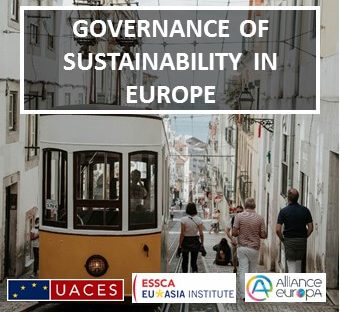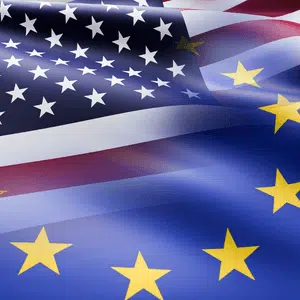The European Union has developed into a diplomatic actor on the global scene, and this new engagement is made concrete in the so-called “European External Action Service”. Frauke Austermann, research associate at the EU-Asia Institute, is one of the very first academic authors to publish an in-depth study on this topic. Her book European Union Delegations in EU Foreign Policy: A Diplomatic Service of Different Speeds was published by Palgrave-Macmillan in September 2014. In a short interview, Frauke provides some background information.
The European External Action Service (EEAS) is a very young brainchild of the Lisbon Treaty. It was launched in January 2010 and, roughly, consists of a large number of EU Embassies around the world. What would be your assessment of its actions and its efficiency?
The EEAS was actually already mentioned within the Constitutional Treaty which has been rejected by the French and Dutch referenda in 2005. The Lisbon Treaty, however, roughly included the same provisions about external action. One famous exception is the renaming of the ‘Union Minister of Foreign Affairs’ into ‘High Representative for Foreign Affairs and Security Policy’ so as not to give the impression that the EU becomes state-like.
What I see in my research is a quite an effective prototype EU foreign ministry – not least because the EU ‘embassies’ (which are officially called ‘EU Delegations’; again not to make the EU seem like a nation-state) did not appear from nowhere. Since the late 1950s there have been Commission Delegations all around the world. The Lisbon Treaty has turned them into EU Delegations and they have been politically upgraded: they do not only represent the European Commission but the EU as a whole. Hence, not only EU officials work there but also diplomats from the EU member states’ foreign services.
In summer 2014, a new High Representative for Foreign Affairs and Security Policy was appointed. There were some criticisms about the choice of Federica Mogherini, most notably about her young age (she is 41).
EU politics is consensus politics. As a result, appointees for high offices are always consensus candidates. In contrast to her predecessor Catherine Ashton, Frederica Mogherini has at least some experience in foreign affairs. Nonetheless, even the most experienced and charismatic candidate would not be able to cause a revolution of EU foreign politics. Decisions are still made unanimously in the Council.
How did you become interested in European foreign policy in the first place? And on what concrete field work methods is your book based upon?
The EEAS was ‘the’ hot topic in EU politics when I wrote my PhD thesis – and it is still now. Many told me that I was way too early with my analysis which I started in 2009. This did not hold true, not least because of the long history of Commission Delegations whose history I traced as part of the book. To see how Lisbon has changed European diplomacy on the ground, I was lucky enough to do extensive field research in the diplomatic quarter of Beijing, including 30+ personal interviews in almost all member state embassies and of course in the EU Delegation. Thereafter, I isolated a number of objective indicators, such as presence, status and number of staff per Delegation or diplomatic rank of the Head of a Delegation. I developed an own EU Diplomacy Centralization Index and calculated the level of diplomatic centralization for all non-EU countries in the world. This allowed me to assess the relationship between the type of country on the one hand and the degree to which the EU can ‘speak with one voice’ in each country on the other.
In a nutshell: after this extensive research, do you consider the European Union a global diplomatic power? Especially as compared to traditional players like France and Britain?
The Lisbon Treaty was an important step to strengthen EU foreign policy. However, the EU is not a nation-state – and modern diplomacy is still largely based on this concept. The essence of my book is that the EEAS will always be a diplomatic service of different speeds: in some countries, it will be easier to centralize EU diplomacy; in others it will be more difficult. Read the entire book and you will know why!





